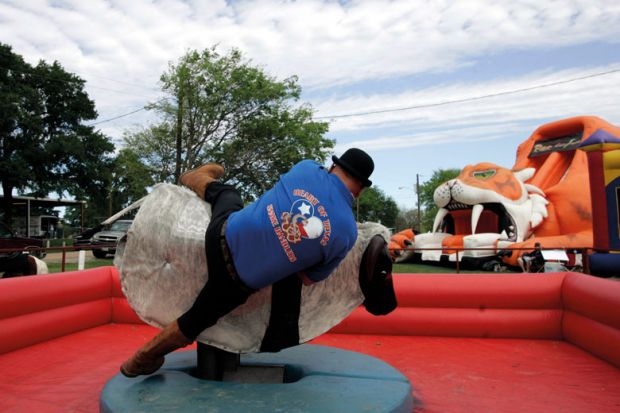A year since its launch as a free-speech-crusading alternative to “liberal” institutions, the University of Austin appears to be making reassessments of its development and political ambition.
The planned new private campus, announced late last year, promised sympathetic students an emotionally safe space with the familiar trappings of a traditional undergraduate experience.
On many key measures, the university – known as UATX – is faring well. The institution has reported donations already totalling about half its initial $250 million (£203 million) goal, and says it has received 5,000 job applications and 3,000 student enquiries. It has said it is close to securing undeveloped ranch land near the Texas capital of Austin that it will use for its campus.
At the same time, the ideological adventure has shown some shifts. The land acquisition has already missed the prediction of UATX’s president, Pano Kanelos – a former head of St John’s College in Annapolis – that construction shovels would be in the ground within a year.
UATX’s size may also end up being towards the lower end of expectations. A glowing progress report in October in The Dartmouth Review – the conservative newspaper at Dartmouth College – originally described UATX’s chief academic officer, Jacob Howland, as predicting an inaugural undergraduate class of 2,500 students with a 10-to-one student-to-faculty ratio by the autumn of 2024.
UATX leaders declined to discuss their plans in detail with Times Higher Education, but Professor Howland confirmed that the institution was “aiming for 100” freshmen at the start of the 2024-25 academic year.
At the same time, the institution’s leaders have been making it increasingly clear that they plan to focus on attracting accomplished students and avoid being typecast as a partisan venture, despite their opening announcement in November 2021 emphasising how it would be a future home for academia’s leading right-wing outcasts.
Some of the faculty it has recruited include Kathleen Stock, a professor who resigned from the University of Sussex after she was targeted by protests over her stance on the rights of transgender people; Peter Boghossian, who quit his professorship at Portland State University after submitting fictional articles to scientific journals in an attempt to prove academia’s liberal bias; and Niall Ferguson, a senior fellow at the Hoover Institution at Stanford University whose track record includes hosting a history conference where all 30 speakers were white men.
Despite all the political theatre surrounding UATX, its success or failure will come down to fundraising, said one expert, Barmak Nassirian, the vice-president for higher education policy at Veterans Education Success.
The academic and social arguments for UATX do not appear to make sense, Mr Nassirian said. The US already has plenty of “solid liberal arts colleges in this country, including Great Books colleges, that offer that kind of curriculum” promised by UATX, he said. And for conservative-learning students, “there are plenty of faith-based institutions, hyper-conservative institutions, that you can feel very comfortable at”, he said. “So I’m not quite sure what the distinction is here, because they’re not going to get to be any better than Harvard or Princeton any time this side of the 23rd century, as far as resources or faculty or depth of scholarship.
“They certainly dished out enough red meat on the front end to attract some robber-baron attention,” he said. “It is not inconceivable that they could raise big enough bucks to be a minor little player out there, but this notion of having the brand strength of an Ivy League institution, along with super-conservative credentials that go unchallenged – that's going to be a tough sell.”
Register to continue
Why register?
- Registration is free and only takes a moment
- Once registered, you can read 3 articles a month
- Sign up for our newsletter
Subscribe
Or subscribe for unlimited access to:
- Unlimited access to news, views, insights & reviews
- Digital editions
- Digital access to THE’s university and college rankings analysis
Already registered or a current subscriber? Login








